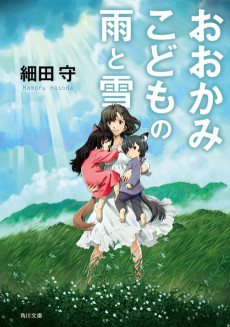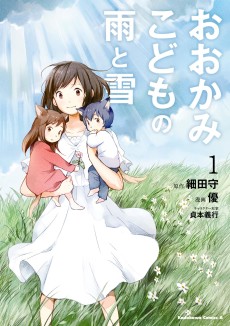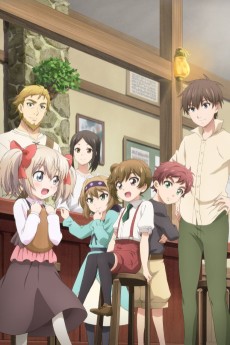OOKAMI KODOMO NO AME TO YUKI
MOVIE
Dubbed
SOURCE
ORIGINAL
RELEASE
June 25, 2012
LENGTH
117 min
DESCRIPTION
The theme of the film is the love between parents and children. The story covers 13 years and begins with a 19-year-old college student named Hana who encounters and falls in "fairy tale-like" love with a "wolf man." After marrying the wolf man, Hana gives birth and raises two wolf children—an older sister named Yuki who was born on a snowy day, and a younger brother named Ame who was born on a rainy day. The four quietly lived in a corner of a city to conceal the existence of the "wolf children," but when the wolf man suddenly dies, Hana decides to move to a rural town far removed from the city.
(Source: Anime News Network)
CAST
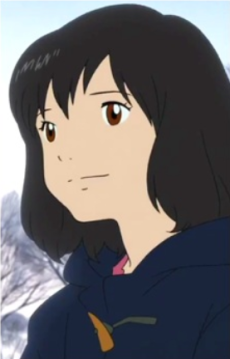
Hana
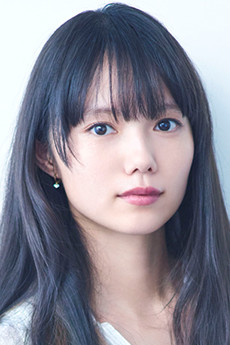
Aoi Miyazaki
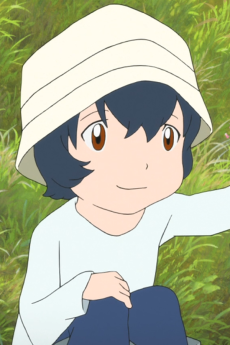
Ame

Yukito Nishii
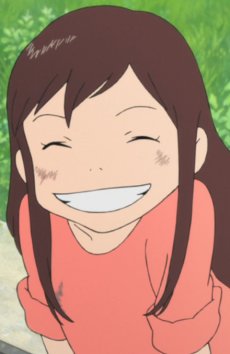
Yuki

Haru Kuroki
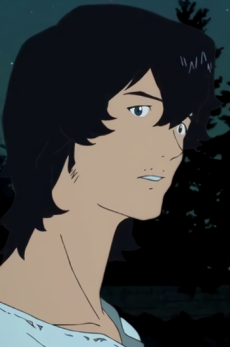
Ookami

Takao Osawa
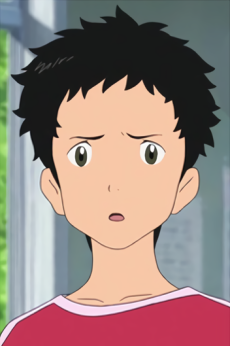
Souhei Fujii
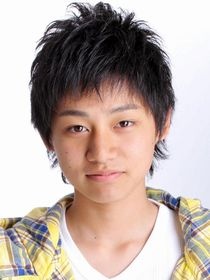
Takuma Hiraoka
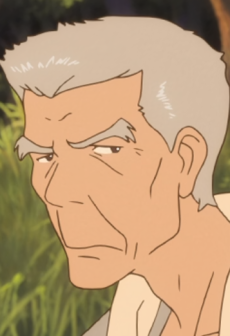
Nirasaki
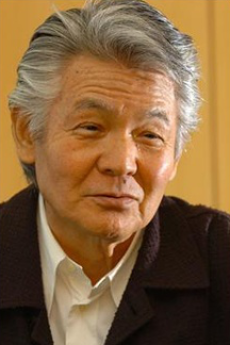
Bunta Sugawara
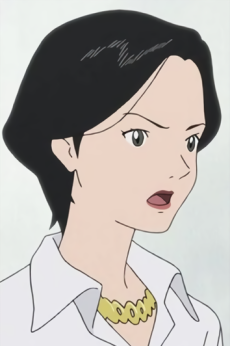
Souhei no Haha
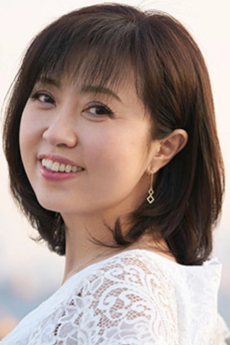
Megumi Hayashibara
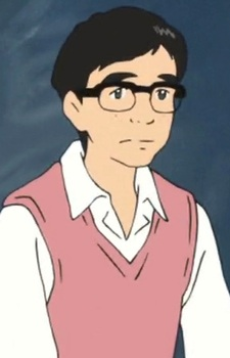
Tanabe

Shouta Sometani

Keno
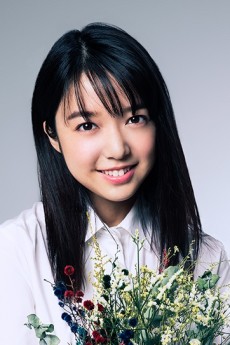
Mone Kamishiraishi
RELATED TO OOKAMI KODOMO NO AME TO YUKI
REVIEWS

Zaphkiel
99/100Smile through your tears and everything will be alrightContinue on AniList__Smile through your tears and everything will be alright__ 
Intro
Is Mamoru Hosoda the heir to Miyazaki's throne when it comes to animated films? He very well just might be. In 2013, Miyazaki released his last film, The Wind Rises. I was extremely sad to see him go because I fell in love with his work as a young child. Enter Hosoda, who also did Summer Wars and The Girl Who Leapt Through Time. Wolf Children is the story of mother named Hana, and her tale of raising her half human and half wolf children. The beautiful story and animation will leave you in tears and with a smile.
Story

Hana, a young student, attends a college and meets a man who shows up to class but doesn't sign the roll. She chases after him and gets to know him. Soon their relationship blossoms and the man decides to reveal his true self as a wolfman. He is the only descendant of a human and wolf remaining and Hana seems to be okay with it. As their relationship they soon have two kids: Yuki (an outgoing girl) and Ame (a very quiet boy). Circumstances lead her to raise these two kids on her own later in the film.
The story, in my opinion, is one of the strongest parts of this film. It explores the bridge between human and wolf. The thing about Ame and Yuki is that they can "shapeshift" into wolves as they are both human and wolf. This leaves Hana to make certain decisions such as whether to take her sick child to the vet or the pediatrician. She also avoids allowing her children to make contact with other children for fear that they may expose themselves. Eventually, these two wolf children will need to make the choice of whether they wish to remain wolf or human. These elements make the film very interesting and enjoyable to watch.
Animation and Sound

No doubt about it, this film is absolutely stunning in the visual department. Studio Chizu and Madhouse bring a variety of color and gorgeous backgrounds, such as the bustling city to the quiet countryside. I felt that the most memorable scene was the part where Ame and Yuki run through the snow.
Takagi Masakatsu delivers a very impressive soundtrack as well. The OST ranges from the extravagant theme of Ame and Yuki playing in the snow to the calm and serene strings during Hana's time with the Wolfman. Overall a very memorable OST.
Characters

While the film primarily focuses on Hana, Ame, and Yuki, there are still a good number of side characters throughout the film. The Wolfman is kind and loving. All the villagers of the countryside welcome Hana warmly and help her settle into her new life. The people of the city are wondering if she has a dog and why her children are always crying at night. The bonds between Hana's family and the villagers are so strong despite them not knowing each other all that well beforehand.
Hana is my favorite character and usually I don't pick the main character as my favorite. She was able to raise her children and persevere through all of the challenges thrown her way. She is very admirable and the kind of loving mother these children needed.
Enjoyment

The first time I saw this film, I absolutely loved it. But even now, I find it so hard to rewatch. It feels like the film gets sadder every time I do. That's what makes it such a good film. I haven't seen a movie in while that could do the same thing to me. The journey that Hana makes with her family is incredible and the film highlights the good times and their bad. It's such a powerful film and it seems to me that each of Hosoda's films get better. Wolf Children has quickly become one of my all time favorite anime films.
Overall Thoughts and Conclusion

I saw an advertisement for this movie in a magazine and it looked great. I knew I had to watch it. The character design and the long string of awards told me it would be good. I am always planning on rewatching it. This film taught me that life can still be beautiful, even when things aren't at their best. I've been able to relate to this and honestly, it can change your life if you are able to change your outlook on the situation at hand. It's all up to you in the end. Hana definitely deserves a "Mom of the Year" Award. I don't know what to say. I was very excited to see this movie and I was definitely expecting a lot from it and guess what: I got a lot out of it. Watch this! You will not be disappointed.

TK8878
37/100Aesthetically tranquil, but lacking in structure & substance.Continue on AniList
Spoiler-free review Review in brief:
While Wolf Children is soothing and has some interesting ideas, putting more than a little thought into what's happening on-screen can easily throw your mind out of the aesthetic cradle the movie builds as you realize just how silly and simple the whole thing is. Considering the clear effort to make this movie a poignant fantasy about a struggling family, it can safely be said that it’s not trying to be either of those things.
Review in full:
I'll start by saying that this isn't going to be the sort of review that's trying to scorn the movie or "expose" it as being terrible or whatever. Rather it will be an analysis of my own experiences with it, why I had them, what I thought about them, and if you're likely to have similar experiences with it or not. I won't spoil anything either, though I believe the synopsis at the top of the page does in fact spoil the first third of the movie to a notable degree. Don't read it if you haven't already.
My first viewing of this movie was in a group. As the movie started, me & my friends came to expect something charming yet emotionally serious in large part due to how much the early scenes suggested this. Indeed, the entire movie has a rather calm atmosphere about it (even during more dramatic moments) thanks to the tranquil art style and soundtrack.
 _Mamoru Hosada sure makes his movies picturesque._
_Mamoru Hosada sure makes his movies picturesque._However, there is a certain event early on that will likely make or break the movie for you depending on how you look at it. I won’t spoil it here because I believe witnessing it spoiler-free is an integral part of the intended viewing experience, but it’s suffice to say that it’s the first key event in the plot; it’s what allows the rest of the movie to happen at all. If you don't think about it too much you'll likely see it as an unusual yet romantic scene, but if you apply what you've been told so far about werewolves and how they work in this story then it can easily lead to a number of major questions as to how and why it's happening like this.
As the movie goes to the next few scenes, it takes on more of a "slice of life" approach to things, only with time-skips that can jump over a year or more of time. If you've been taken into the movie’s aura of calmness it will flow along smoothly, but if you've already begun asking questions (as my friends and I had been) then two things will become apparent: the answers the movie suggests don't line up with what's actually been said and the "slices" of life are more like rough chunks considering the time-skips. In essence, a visible split between the story and its presentation appears.
At this point the entire group I was in had lost our suspension of disbelief, thanks to our questions and the unfitting answers we found. For a short while the movie's calmness began making people dose as they lost interest, until we started joking at the events & dialogue to follow. We weren't watching Wolf Children anymore, rather it had become Wolf Children Impromptu Abridgment. I had to re-watch the movie later to analyze it seriously, but the damage had been done.
The movie would continue it's slow yet jumpy "chunks of life" approach for much of its remainder, and while the idea was interesting, the execution never brought said idea to its fruition in either of my viewing experiences. Aside from Hana & Yuki (who were flawed, but in an appreciable & human way) the characters didn't receive much development, and some of their reactions to important events were jarring in the sense that they weren't very realistic reactions for the characters involved. The movie doesn’t attempt to explain why a werewolf would decide that the downtown of a major Japanese city is an acceptable hunting ground, or why a child’s claim that they were attacked by a wolf inside a school (what with wolves being extinct in Japan) wouldn’t raise serious questions. Doing so would only point out how poorly thought-out these events are. The result is a sense that everyone is either exceptionally shallow or somewhat crazy.
I wouldn't say it was the story's fault per se, but rather the plot as it was executed. In a story focusing on people growing up and deciding how they feel about the world and their place in it, the plot’s emphasis was not put on the characters but rather the events they found themselves in. There’s a word for this type of plot; melodrama, and while I’d argue that melodrama is simply a tool that has a distinct purpose in storytelling, Wolf Children is a stark example of its overabundance and misuse in the modern day. The beauty of the visuals and the fitting & tranquil music tie into this, and are easy to get lost in, but if you think about it for more than a few moments while it's all happening then the detachment between story and presentation becomes clear, leaving you with something pretty yet bland.
Verdict:
If you are the sort of person who can shut off your brain, then this movie will take you away to a whimsical place. If you can't (or refuse to) stop thinking, then you may see this place for the well-painted box it really is, and your questions won't reveal all that much outside of it. As the latter, I can’t say I enjoyed Wolf Children at all, despite the obvious effort made by its producers to be more than a simple box. If you're the former, then you may find much more enjoyment in this piece.

AndoCommando
80/100A film worthy for calling Mamoru Hosoda the next MiyazakiContinue on AniListLife is unpredictable. Just when we think we have a grasp on what’s going to happen next, when we fall into the belief that things are going to go as planned, they can change completely in an instant. The idea that minor changes can have major impacts is nothing new, but is something that I believe is taken for granted; I doubt most people take any time to stop and think about all the “little things” in our lives that played a part in who we are and where we are in our life. Change is a part of the very nature of life and everyone experiences change to some degree. And with change, people have to adapt in order to keep on “living”. Numerous times in film and anime, characters are subjected to a change in their life and eventually cope with this in some way. But with Wolf Children, I see the film depicting changes in life as just that: changes that simply take place in the overarching tale of a woman wanting to give the best chance at life possible to her children.
This review contains spoilers
Wolf Children is a 2012 animated film directed by Mamoru Hosoda, a man often compared to legendary Hayao Miyazaki for making high-quality, family-friendly films with mass appeal. Both of Hosoda’s previous works – The Girl Who Leapt Through Time and Summer Wars – were nice films that had their moments, but Wolf Children is a substantial improvement, delivering on a touching family drama with an entrancing twist that to me adds a lot to the justification of the initial comparison. The film follows Hana, a young woman who, during one of her university classes meets and falls for a mysterious man who eventually reveals himself to be a “wolf man”, someone who is able to transition between human and wolf. Hana is undeterred by this and the two form a relationship which leads to the couple having two children, Yuki and Ame, before the father’s tragic untimely death. This leaves Hana to raise the two half-human, half-wolf children as best she can.
The film has two different storyline paths following the initial romance, the first dealing with Hana’s struggles when she initially tries to raise the two children by herself, whilst also trying to hide their identities. Yuki and Ame at this point have very little control over when they transform into wolves and as such puts the mother in a position where she has to hide them away from public eye. This action has a lot of drawbacks such as if one of her children were to get sick, where would she take them for care, a hospital or a veterinary clinic. It also draws suspicion, to the point where she is almost forced to move and lose custody of her children. But perhaps the worst problem the family end up facing here is how they are alone in these problems; practically excluded from society with Hana having no one to help her in this time of need. Wolf Children has no problem showing how ruthless and harsh society can be when you just want to live a normal life, even if they are different from the norm. But Hana doesn’t let her family’s secrets get in the way of Yuki and Ame’s upbringing as they move to the countryside where they won’t be hassled by society and have the chance to be raised as both humans and wolves.
The second path focuses on Yuki and Ame themselves as they try to develop their own identities and how they want to live their lives, whether it be alongside humans or in the wild. Yuki and Ame are two very different personalities; Yuki being the outgoing older sister to Ame, the timid younger brother and in this part of the film we see proper contrast between the two. The way both siblings react to other people and circumstances make them seem like polar opposites to each other. Over the course of the film they both develop in their own separate ways, with Yuki’s personality leading her to act more like what a girl her age would be expected to act in order to find a sense of belonging amongst her classmates. Whereas Ame’s timid nature causes him to get ostracized and bullied, pushing him further away from human interaction and closer to nature, leading to him gaining an intrigue in wildlife and other animals. While Hana is never in complete agreement with what each of her children end up wanting, she doesn’t stop them from living their life the way they want. Wolf Children is more than a movie about the trials and tribulations a mother faces. It is about struggling to find a sense of identity and belonging, along with how far a mother can go to ensure their children’s happiness.
Regarding the film’s presentation, Wolf Children both looks and feels incredible. From the moment the film begins with Yuki’s narration over a beautiful field of flowers accompanied by a majestic piano piece, it will have you in its thrall. The story is an emotional experience at the core and the film capitalised on this fact immensely. Despite the amount of time-skips that took place it never stagnated the development on the main characters nor did it hinder my investment in them. We were always shown key events in their lives and felt as if we had observed the natural growth and changes with each child, a feat that is not easy to accomplish. The pacing here is also worth noting; most of the time the film does love to take its time on certain scenes, and considering the films acts almost like a fictional biography in how it tells its story, it overall adds to the experience. Viewers are shown the ups and downs this family faces in detail and puts more focus on the family and how they’re able to cope not only as individuals, but as a union. While I personally would have preferred to have a longer runtime to add to the conclusion, I cannot deny that Wolf Children does an excellent job at telling an emotional narrative within the confines of a film.
When it comes to anime, films tend to have higher quality animation and design compared to TV series. And while Hosoda at this point has not perfected the kind of “scenery porn” to the degree of a Makoto Shinkai, it still stands as one of the most stunning and breathtaking animated films in its visuals alone. The backgrounds were filled with vibrant colours with a particular attention to detail in nearly every scene. Most of the countryside setting is clearly inspired by Studio Ghibli’s My Neighbour Totoro, especially when it comes to how Yuki explores their new home for the first time, adding to that sense of genuine child-like fascination the film clings to. The animation itself was smooth and soothing to watch with its own unique style to it, almost looking completely hand-drawn for the most part. A lot of CGI was used; a risk that commonly results in scenes looking out-of-place. But in Wolf Children, that rarely ever happens, with most CGI used providing the film with computer-generated camera shots that are unmatched in the medium thus far. And while some aspects of the film’s visuals such as disproportionate character designs can take away from the aesthetics to some, they are never focused on, with the film instead aspiring to leave you mesmerised with its exquisite animation.
The music here can tell a story just as well as words. Sections of the film contained no dialogue whatsoever, just lovely music conveying all that is needed to tell. The soundtrack is just as beautiful and impressive as the visuals, matching to create an atmosphere that truly entranced me into this family and world, and I could not get enough of it. The music never stands out, but is memorable in its own way; has its own kind of emotional impact. It does the job of heightening scenes to a higher level exceptionally well. Sound effects used are also well-executed – amplified for increased sorrow or tension and subdued when necessary for important scenes. When talking about the Sub vs Dub debate here I’ll be honest, I didn’t watch the subbed version. I only saw the English dub and even now I don’t think watching the subbed version is needed, because the dub overall is fantastic and deserves to be seen.
Wolf Children is one of the few movies that I truly believe you can’t go wrong with. Despite the many times I’ve heard about the beastiality scene and how uncaring the mother supposedly is, I call bullshit. To see Wolf Children is to see people’s lives unfold and blossom in the blink of an eye. It’s a heart-warming story full of the delights, struggles and confusion of life, both as a mother who wants the best for the children and as a young boy or girl trying to find where they belong in the world. These two perspectives do collide once the children have a chance to experience both lifestlyes as Yuki and Ame each go on their separate paths, Yuki choosing the life of a human and Ame the life of a wolf. The latter choice initially a bitter pill for the mother to swallow, essentially losing her 10-year old son to a dangerous life where he could very well die ala his father. However, after seeing Ame run into the mountains and stands proud as a wolf, she realizes he has found his own path and accepts his decision, stating towards the end of the film from the top of the lungs:
“You’re where you belong.”
That final farewell, saying to her child essentially "have a good life" is a crushing sentiment that can ruin one the more they hold onto the memories of them together, but is also a righteous notion that every parent or guardian at some point will have to let go. And at that point, it's all over in the blink of an eye. That is life.
SIMILAR ANIMES YOU MAY LIKE
 ANIME Slice of LifeUsagi Drop
ANIME Slice of LifeUsagi Drop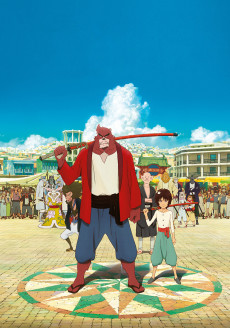 MOVIE ActionBakemono no Ko
MOVIE ActionBakemono no Ko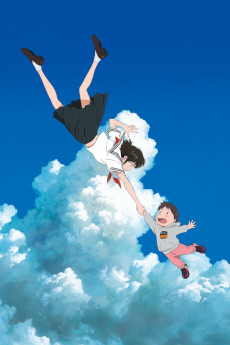 MOVIE AdventureMirai no Mirai
MOVIE AdventureMirai no Mirai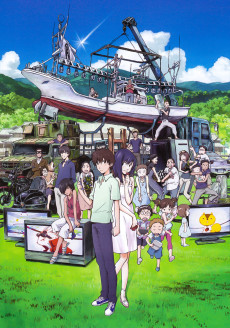 MOVIE ActionSummer Wars
MOVIE ActionSummer Wars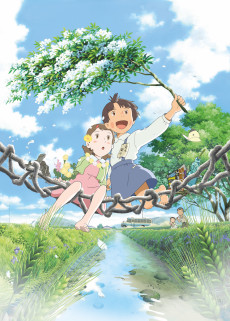 MOVIE AdventureMai Mai Shinko to Sennen no Mahou
MOVIE AdventureMai Mai Shinko to Sennen no Mahou MOVIE AdventureTonari no Totoro
MOVIE AdventureTonari no Totoro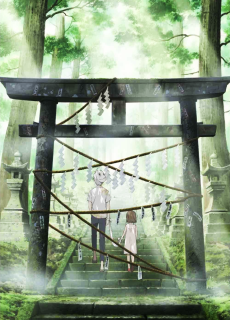 MOVIE DramaHotarubi no Mori e
MOVIE DramaHotarubi no Mori e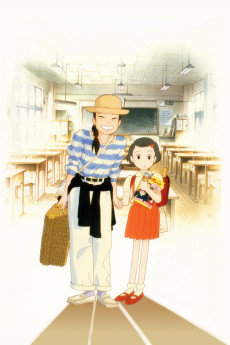 MOVIE DramaOmoide Poro Poro
MOVIE DramaOmoide Poro Poro
SCORE
- (4.15/5)
TRAILER
MORE INFO
Ended inJune 25, 2012
Main Studio MADHOUSE
Favorited by 5,760 Users

